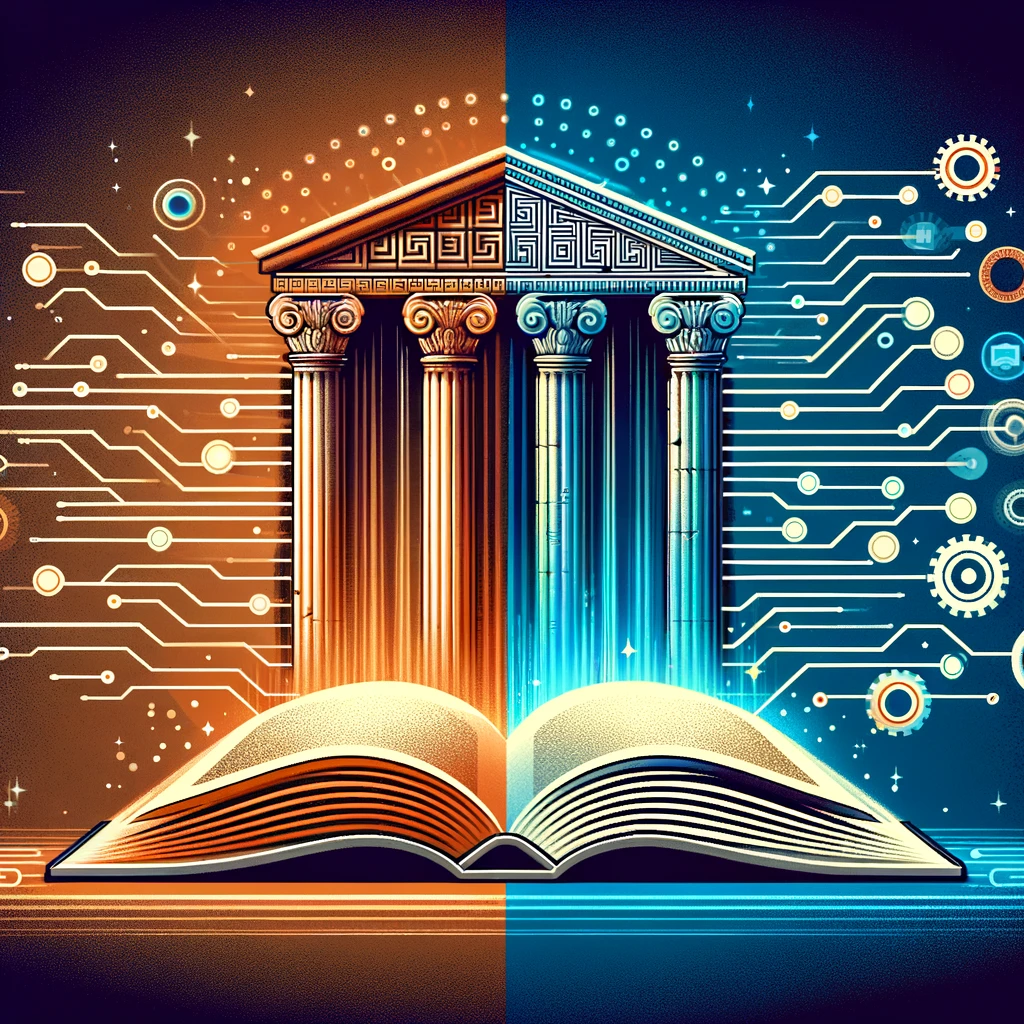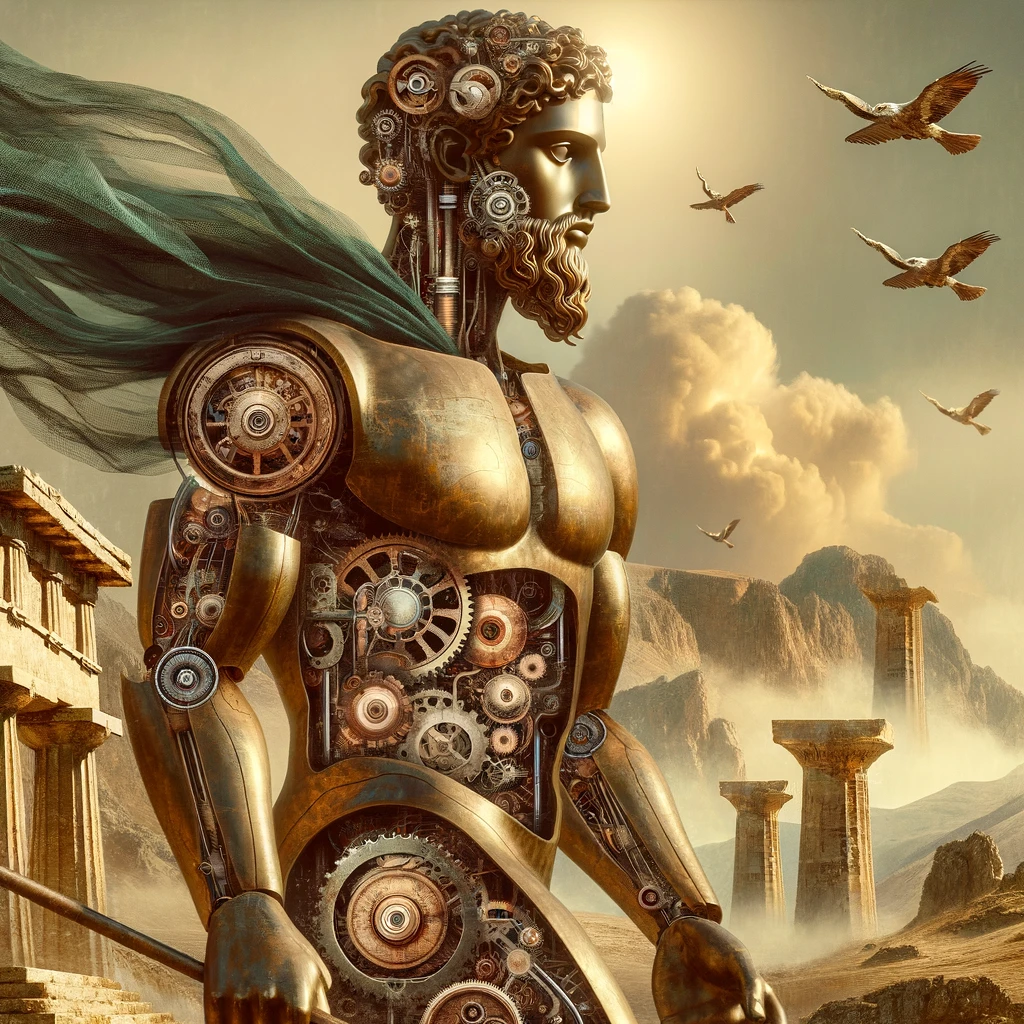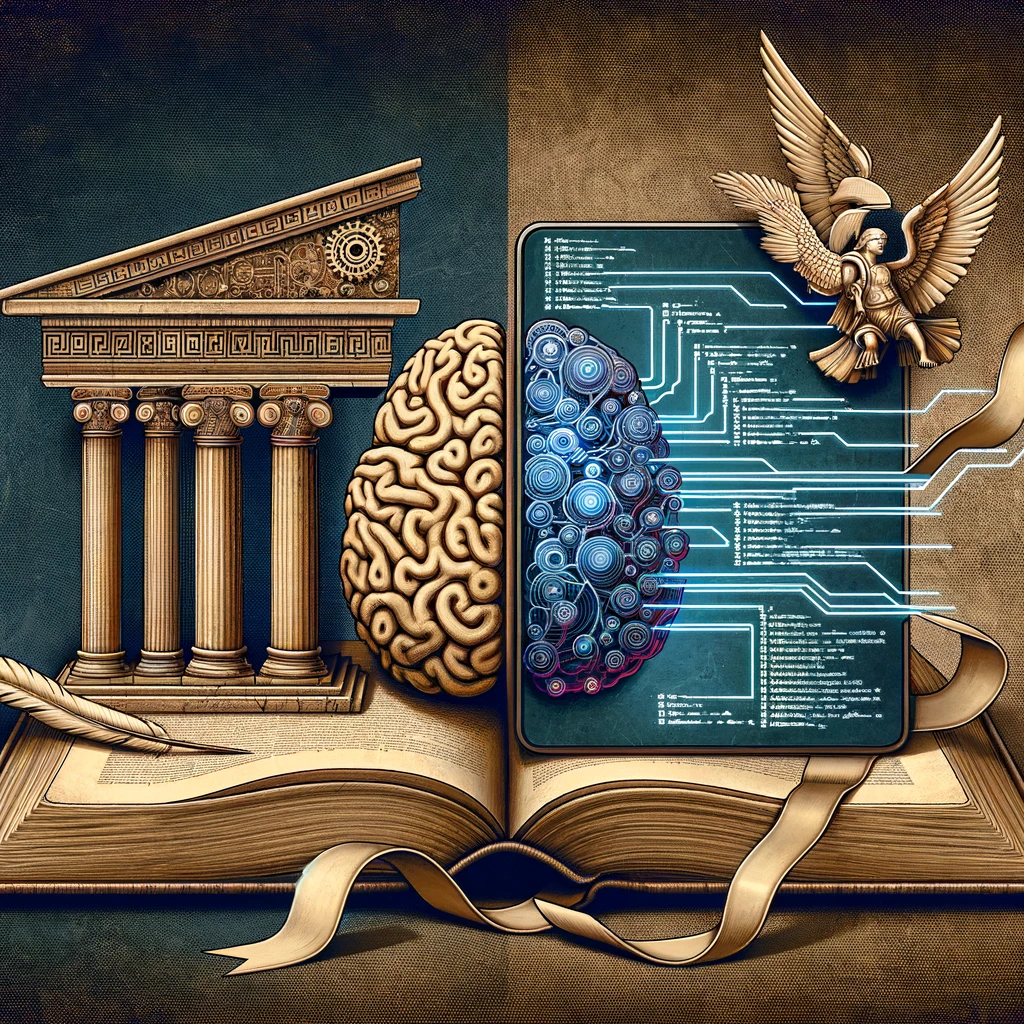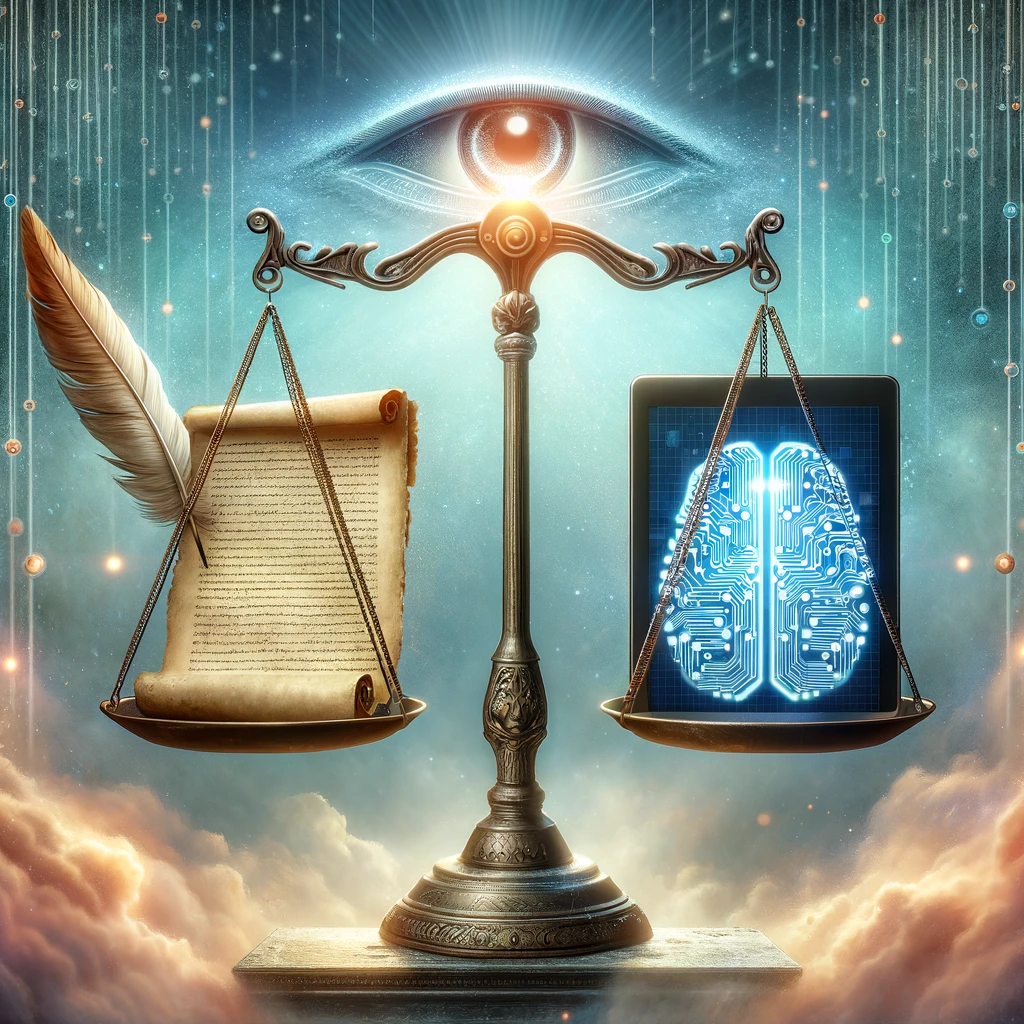Tracing the Origins and Progression of Artificial Intelligence in Fiction
By: ChatGPT
Originally Generated: November 9, 2023
Introduction: A Journey Through Literary Time
The concept of artificial intelligence (AI) has captivated human imagination long before the term was coined, stretching back to ancient myths and the earliest works of literature. This exploration uncovers the genesis of AI in storytelling and contrasts these narratives with the capabilities of contemporary AI systems.
The Dawn of AI in Human Storytelling

Ancient Epics and Myths
The Epic of Gilgamesh, one of the oldest known works of literature, introduces us to Enkidu, an artificial human created by the gods. This narrative thread extends to the myths of ancient Greece, with figures like the automaton Talos, crafted by Hephaestus, the god of invention and blacksmithing.

The 19th Century: A Turning Point
The 19th century marked a significant moment in the literary treatment of AI with stories like E.T.A. Hoffmann’s “The Sandman” (1816), featuring a lifelike automaton, and Mary Shelley’s “Frankenstein” (1818), often regarded as an early narrative of a created artificial being. Samuel Butler’s “Erewhon” (1872) pushed the boundary further by suggesting the evolution of consciousness in machines.
Comparing Literary AI with Modern Realities

Fiction vs. Modern AI
While early literature often portrayed AI with human-like intelligence and consciousness, modern AI, although advanced, operates quite differently. Today’s AI systems, such as the one you’re interacting with now, perform tasks using large datasets and algorithms to recognize patterns and make predictions, rather than possessing true consciousness.
The Influence on Modern AI Development
The imaginings of AI in literature have influenced the development of real-world AI technologies. Visionary authors laid the groundwork for conceptualizing machines that could mimic human thought processes, paving the way for actual AI research and development.
Ethics and Responsibility: Echoes from Literature

Ethical Considerations Then and Now
The ethical questions raised by AI in literature continue to be relevant. Just as Mary Shelley’s “Frankenstein” touches on the moral responsibilities of creators, modern AI development also grapples with ethical issues surrounding the creation and application of AI technologies.
The Ongoing Narrative
The conversation about AI, from its earliest mentions in literature to its current state, is an ongoing narrative. It reflects humanity’s enduring quest to understand and replicate its own cognitive abilities, as well as the responsibilities that come with such power.
Conclusion: Literature as the Mirror of AI Evolution
From the Epic of Gilgamesh to “Erewhon,” and from “Frankenstein” to the digital assistants of today, AI has been a constant fixture in the human quest for knowledge and creation. Literature not only anticipated the rise of AI but also set the stage for ethical considerations that remain critical as we forge ahead in the age of real-world artificial intelligence.